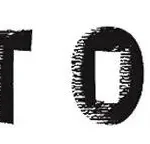TRENTON – Human Services Acting Commissioner Sarah Adelman May 12 announced the Murphy administration secured another $22.6 million in federal funds to expand and support mental health services, especially in the wake of Covid.
“The pandemic continues to take its toll on individual’s emotional and mental health, and the services and support we provide through New Jersey Human Services are needed more than ever,” Adelman stated. “We are grateful for this federal funding to maintain and expand the services that individuals need, and we want people to know they are not alone and that help remains available.”
“The funding helps us strengthen services to individuals diagnosed with serious mental illnesses, including the impact Covid has had on their lives,” Division of Mental Health and Addiction Services (DMHAS) Assistant Commissioner Valerie Mielke stated. “Many of these programs serve people with persistent mental illnesses that were exasperated by Covid.”
According to a release, the funding will be used to enhance diversionary efforts, crisis stabilization, and community integration efforts, with a goal of reducing visits to emergency departments and inpatient admissions, along with enhancing outreach and treatment activities that will increase access to community services.
Among the services to be funded are:
· Early Serious Mental Illness (ESMI) programs: New Jersey will add three new programs to the existing three to serve individuals with first-episode psychosis: $2.67 million.
· ESMI Community Integration Programs: DMHAS will be developing six ESMI Community Integration Programs that will provide treatment and supports to individuals after they complete the ESMI program: $2.34 million.
· Crisis Receiving and Stabilization: DMHAS will create four Crisis Receiving and Stabilization programs in the community to provide 24/7 community access to crisis diversion, stabilization, and linkages to services and housing supports. The goal is to have at least one Crisis Receiving and Stabilization program per region: $6.1 million.
· Emergency Room Diversion: DMHAS will create nine programs to serve individuals who frequent the emergency departments. This program will provide care management services, providing support and connecting individuals to needed services to reduce the reliance on emergency services: $4.94 million.
· Legal Assistance with Evictions and Housing due to Covid/housing stability. The DMHAS will use funds to support housing stability to avert homelessness through evictions. The resources will be used to enter into a contract with an agency that is staffed to provide landlord/tenant legal services to individuals diagnosed with a serious mental illness facing eviction; $350,000.
· Outreach, including crisis response to underserved populations, such as LGBTQI+ individuals and faith-based communities: $1.8 million.
· Mental Health First Aid: DMHAS will expand mental health awareness training to provide mental health first aid: $400,000.
· Peer Wellness Program: DMHAS plans to fund a wellness program to improve consumers’ self-esteem and promote positive self-care using empirically proven interventions. The peer-run centers that provide support and recovery services to a diverse population of consumers around the state will receive training and supervision on recovery-oriented cognitive therapy, along with peer wellness coaching: $400,000.
· Recovery-oriented Cognitive Therapy training: Residential service providers in cognitive therapy for recovery will be trained to help to motivate and support consumers to make positive changes in their lives. This is an evidence-based approach that will allow these providers to collaborate with and support their residents’ individual recovery goals and help them engage in meaningful community activities. It will be offered statewide to all residential providers serving individuals with serious mental illness, although group homes and providers of supported housing services will be the primary participants in the training: $500,000.
· Implementation of 988: DMHAS will roll out 9-8-8 to become the new three-digit dialing code for a mental health crisis to replace the current National Suicide Prevention Lifeline number by July 2022: $500,000.
· Performance improvement training for providers in the acute care system that serve the seriously mentally ill population: $400,000.








